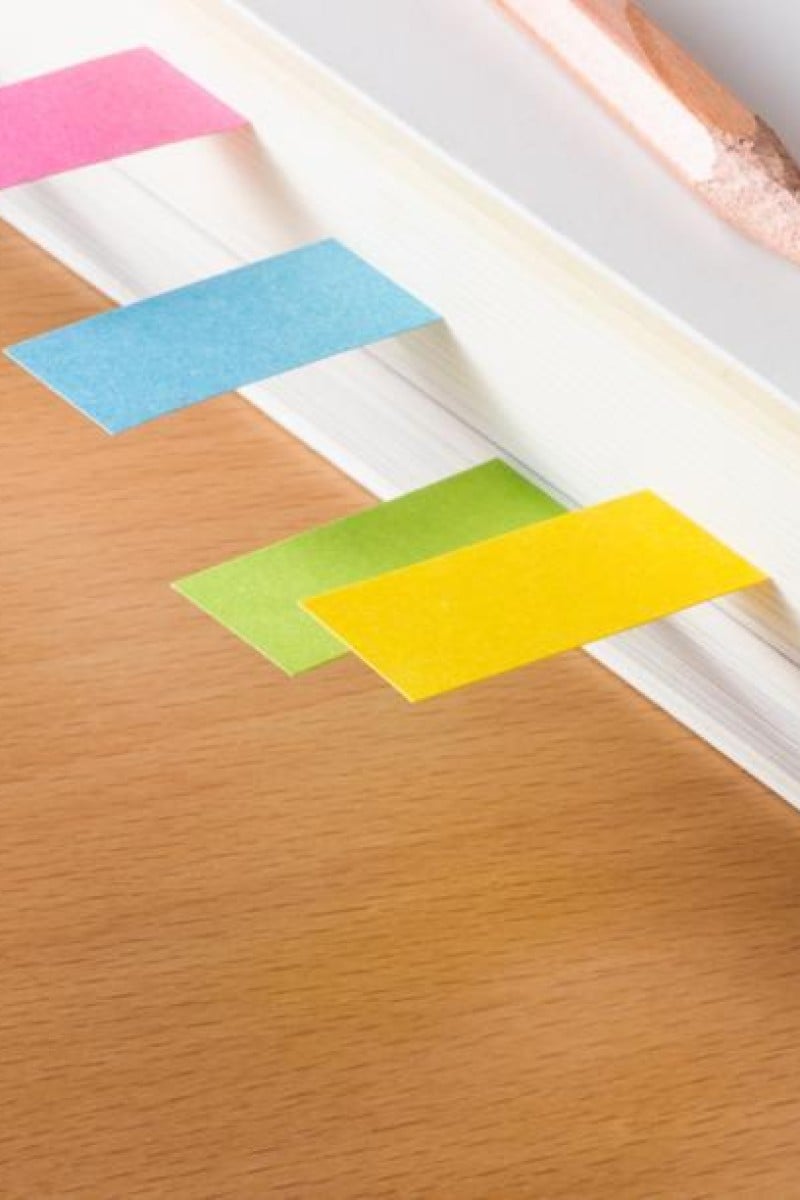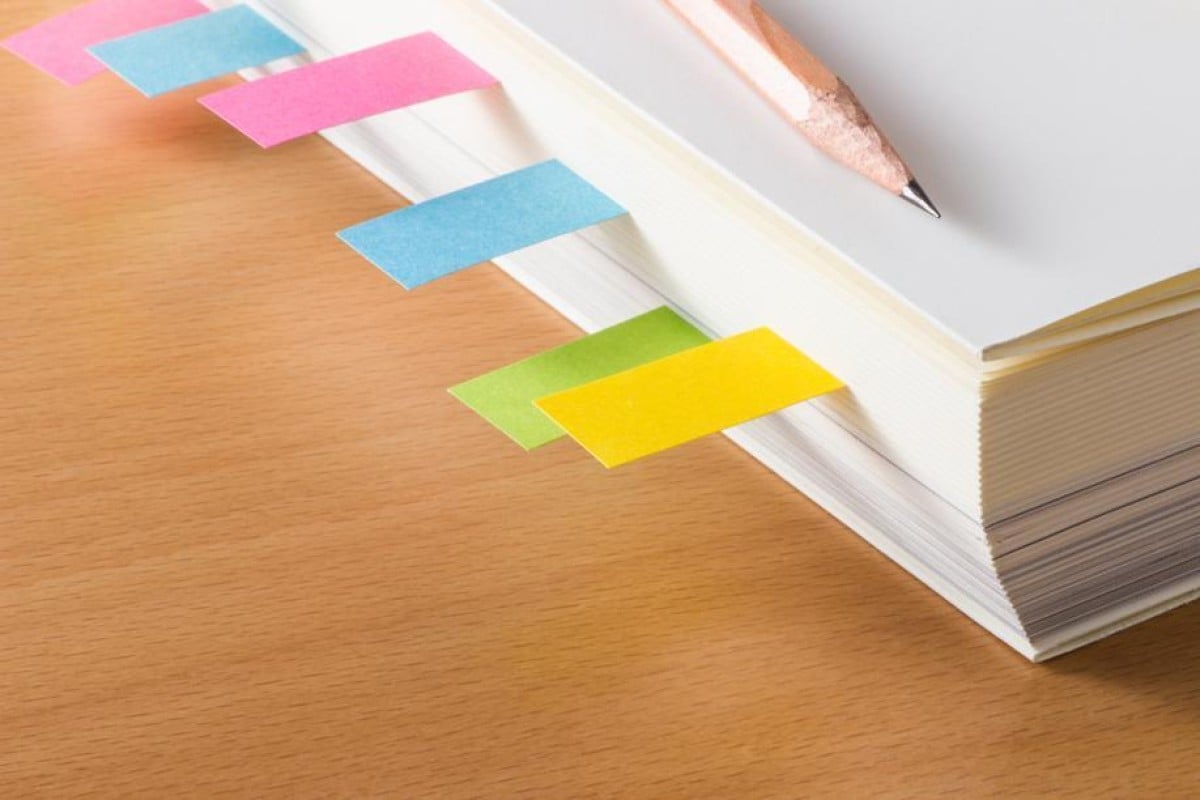
Exam tips and study advice from adults who've been there, done that
From practising past papers to highlighting techniques, here's the best exam advice from the Young Post Team.

Studying for your DSEs can be tricky. The crying, the hours of staring at a single page of notes without any of it going in, the constant lead feeling in your gut – trust us, the YP team have all been through exam hell in one form or another. Here’s what revision was like for us, what worked, and what didn’t.
Diagrams. Many, many diagrams.
Oh dear, confession time. When I was taking my school final exams I didn’t revise much … it didn’t work out well for me, and there were no surprise top marks. I chose to concentrate more on what I was good at, so that I could score really highly on those subjects. Biology was the one I chose to work at, and I remember having all the diagrams I needed to memorise taped all over the place. For example, I’d be in the bath with a large diagram of a skeleton. I’ve never forgotten the names of the bones.
Susan Ramsay, Editor
Practice makes perfect
I have a short attention span and can barely make it through a chapter of a textbook without falling asleep. I tried different ways of studying, and found that writing my own notes, simplifying the theories and concepts, helped me to remember better. I also took practice tests to familiarise myself with how different questions would be presented during exams. I found this especially useful for subjects like maths and sciences.
Doris Wai, Multimedia Producer
Five things you need to know before entering a HKDSE exam room
Learning from storytelling
I was so bad at revision. I tried writing on colourful paper, having music on in the background, having silence … nothing worked. The only thing that helped was if I rewrote the content I had to learn in my own words as though I were writing up the information to help someone else understand it. This worked for me all the way through to university, which I studied as a historian, so learning from storytelling – which is essentially what history is – was perfect for me.
Heidi Yeung, Web Editor
Highlighters are your friends
I am a master procrastinator and the only thing that could really motivate me to keep studying was using an excessive amount of highlighters and gel pens to write my notes, and promising myself a snack after going through a chapter of my textbook. I’m quite a visual learner, so I would also try to remember bits of information by drawing them into cartoons. I had the bad habit of cramming everything I needed to know a week before my exam, right up to the night before. If I could do it over, I would definitely give myself more time to study and let the information really sink in.
Nicole Moraleda, Sub-editor
Don't overwrite
I would practice as many past papers as I could, and look at the mark sheet after to see how I fared and where I needed to improve. Often, it would be a case of learning how to write according to how many marks each question was for. I had a tendency to over-write, so this helped me in many ways, including practicing time management. Before I started tackling past papers, I’d read and summarise each chapter, while read my notes out loud to myself. This helped me remember the content much better!
Rhea Mogul, Junior Reporters’ Manager
Craft your own notes
I used to write my own notes, study tutorial hand outs and work on past papers. None of these things seemed particularly helpful for me, though. If I had to go back in time and take my exams again, I’d start studying earlier. I would turn key terms and theories into pictures, or invite (force) my friends to test my knowledge by asking me questions. For me, recalling images is easier than recalling words, and saying out loud what I’ve learned helps me remember things better.
Nicola Chan, Reporter
5 tips to help your last minute exam prep stick
Just try harder
I was terrible at revising. My attention wandered terribly, and I would stare off into space a lot. I tried to study with my friends, but we’d end up talking, gossiping, and goofing off. In the end, my grades reflected my inability (or unwillingness) to study properly – they weren’t bad, but they could have been a lot better. If I could, I’d give past-me a kick up the bum and tell myself to just try that little harder.
Ginny Wong, Production Editor
Read everything again
What I did was go through the class material cover to cover, reading it many times to try and understand what it says and what it is trying to teach. Then, I would commit whatever insights I got from them to my notes. Group work also helped, as asking and answering questions would mean you had to know more or less what was going on. Naturally, I failed my exams horribly. The same approach seemed to work for me in university, though, because I graduated. Given a second chance, I might have focused harder on doing past papers, working on exam skills, and memorising everything.
Wong Tsui-kai, Web Reporter
Take a little break
Apart from going through my notes and doing as many past papers as I could, I would jot down my mistakes in previous exams in a little notebook. I would then check my notebook frequently until exam day – knowing where I tended to go wrong worked for me. Whenever I was tired of studying, I would do exercise, like taking a walk or cycling. After that, I was always ready to study again.
Joanne Ma, Reporter
Present to a friend
I always tried to come up with fun (or as close to fun as possible) ways to revise content. I would cover my bedroom floor with mind maps and posters, and put together PowerPoint presentations on different topics, which I would then “present” to my sister. But, when it comes to exam technique, I think the only thing you can do is practice. So, I would do every single past or sample paper I could find, and then check them against the mark scheme. By far my biggest issue was time management, because I always wrote too much, so doing timed essays really helped (although I still didn’t finish most of my real exams).
Charlotte Ames-Ettridge, Sub-editor
HK's IB top scorers share their study tips
A good night's sleep
I found that making my own notes from the textbook material was a great way to revise. I would try my best to use my own words to describe the theory, or come up with examples from my own life. Another thing I did was to try to explain the material to a friend, because teaching another person is a great way to find out about your own strengths and weaknesses. One thing I would have done better is not panic the night before and cram. You should get a good night’s sleep before an exam, because that affects your performance more than trying to look over your notes desperately one last time.
Jamie Lam, Special Projects Editor
